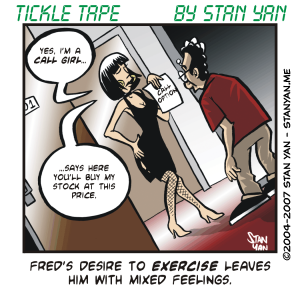Sam has been monitoring a position for the past week. He bought at $50 and had a target of $52. For the past week, the price moved according to plan. Sam was feeling good about his progress. He had been working on the trade for the whole month, and he couldn’t wait to see his hard work pay off. Suddenly, however, a few key companies missed analysts’ projections and the entire sector took a hit. The price fell hard to 49. Sam was devastated. The loss was a significant letdown. Not only had he lost pride, but felt his ego was dinged. It was hard for Sam to pick himself up, but when trading the markets, you can’t stay down for long. It’s vital to take losses in stride.
How you react to losses can be a matter of how you look at matters. Do you take losses personally or merely view them as a commonplace event when you trade the markets. A study by Dr Keith Campbell and colleagues illustrates that a threat to self-esteem can produce a phenomenon called “ego shock” (Campbell, Baumeister, Dhavale, & Tice, 2003). When people experience a major threat to their self-esteem, they tend to react automatically with an overwhelming, immediate sense of shock. The greater the threat, the more they feel shocked. They are stunned and unable to recover.
Traders can experience ego shock when a loss is too great and unexpected. At the very moment when they need to take decisive action, they are stunned and unable to respond calmly and rationally. Although it’s natural to react to major setbacks with shock, the winning trader can’t be fazed. It’s essential to regain composure and take action.
What can you do when you experience a significant threat to your ego? First, realize that when a major threat happens, you are naturally inclined to feel shocked and stunned. Once you admit that ego shock is a possibility, you can work around the problem. Second, minimize the potential for shock. You will experience a debilitating sense of shock when the threat to your ego is great. A commonsense solution is to reduce the threat. The more risk you take on, the more likely you will experience ego shock.
By reducing your position size, you will decrease the potential threat and reduce ego shock. On the one hand, reducing the amount of money you risk will also reduce your profit potential, but on the other hand, lowered risk will reduce the potential for ego threat, and increase your ability to stay calm and rational when you experience a loss. Third, it’s important to avoid getting caught off guard. Anticipate adverse events and expect losses. A loss will have a less psychological impact if you expect it. It may be unpleasant to think of the potential for loss, but considering the possible consequences of losses will soften the blow to your ego when you do experience a loss.
Losses are commonplace when trading the markets, but they cannot overwhelm you. Rather than experience ego shock, it’s vital to take precautions to ensure that you remain calm and rational when the markets catch you off guard.


